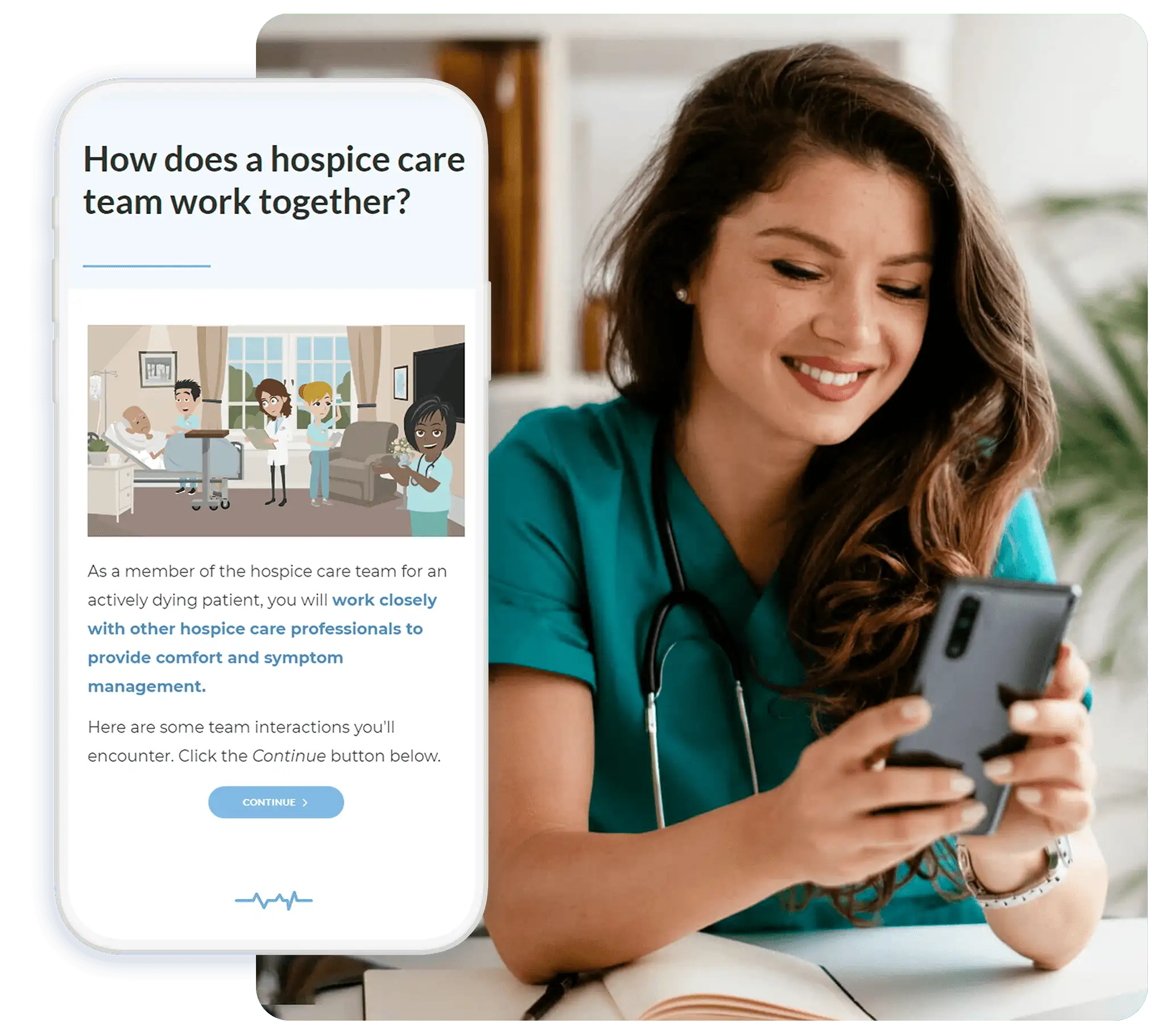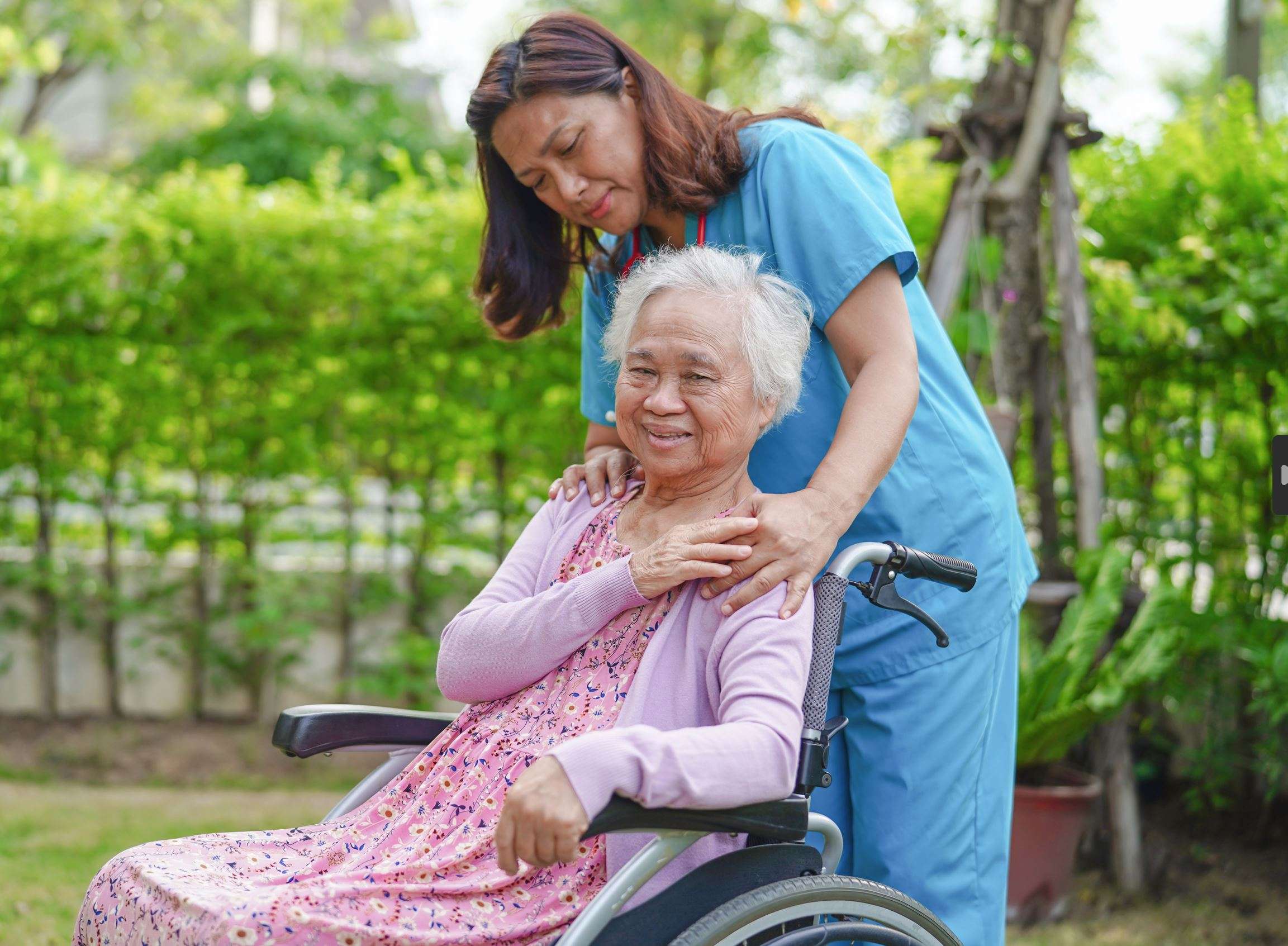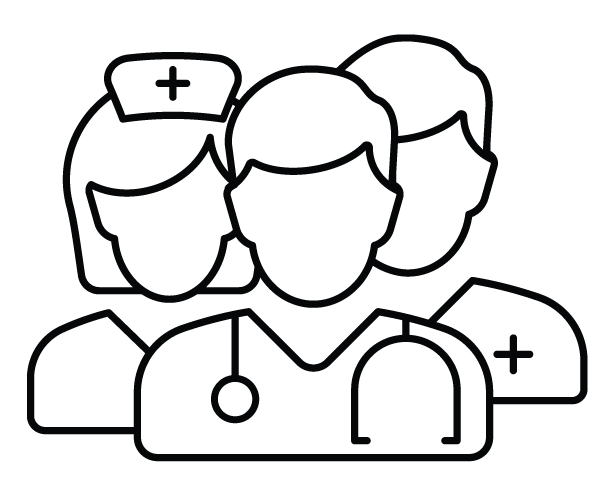Hospice Nurse Training: Preparing Nurses in End-of-Life Care
It is vital for nurses to undergo Hospice Nurse Training to gain the required proficiency and empathy needed in dealing with patients who are at their end of life. These nurses offer medical specialist knowledge and psychological comfort.
Beyond academics, empathy and understanding are vital in addressing patients’ end-of-life needs. Extensive documentation, including legal papers like advance directives and Do Not Resuscitate orders, is also required. Hospice nurses may also require some understanding of hospice coding and billing.
Check out our hospice staff training solution if you or your agency is looking for hospice training.
This article explores the journey to becoming a skilled hospice nurse, from education to certification. Keep reading to discover how you can make a profound difference in patients’ lives.

The Importance Of Hospice Nurse Training
Caring for terminally ill patients requires training and education for effective, compassionate care. Key aspects of nursing end-of-life care are:
- Targeted training necessity: Conventional nursing programs might not address unique hospice care nursing skills.
- Distinct challenges: Hospice nurses face particular clinical and communication hurdles with patients and families.
- Death and dying comprehension: Nurses need a thorough understanding of death and dying processes.
- Spiritual and cultural support: Familiarity with diverse practices is crucial for appropriate support.
Without proper training, hospice and palliative nurses may struggle, leading to:
- Suboptimal outcomes: Insufficient training may result in poor patient care.
- Heightened stress: Ineffective hospice care can cause increased stress for colleagues and patients.

What Skills are Required For Hospice Nursing?
It takes a very special person to be a hospice nurse. They must possess the right hospice nurse requirements to provide end-of-life care for their patients. Here are some of the essential hospice nurse skills for success:
Patience & Compassion: Hospice nurses need patience and compassion to care for terminally ill patients and families, understanding that grief varies and listening without judgment is crucial.
Knowledge & Experience: Maintaining a strong knowledge base is vital for quality care, including staying current on best practices, understand patient privacy rights, new treatments, and palliative medications.

CONTINUA LEARNING
Simplify Your Hospice Team’s Training and Skill Building
A complete solution for your agency: more than 125 hospice courses, caregiver in-services, training plans, and more.
Communication Skills: Effective communication with patients, families, hospice aides, and physicians is essential, requiring excellent listening skills and the ability to explain policies or procedures.
Emotional Resilience: Hospice nurses must cope with difficult situations like death and intense emotions, requiring professionalism and inner strength not everyone has.
Adaptability: Unpredictability in caring for the terminally ill necessitates adaptability and problem-solving skills for hospice nurses.

Cultural competence: Essential for hospice nurses, cultural competence skills enable culturally sensitive care for diverse patients and families. Awareness of cultural values allows for personalized care tailored to individual needs.
Pain and symptom management: Hospice patients frequently experience distressing physical symptoms like pain, nausea, and fatigue. Effective management reduces stress for patients and families, focusing on crucial end-of-life aspects.
These qualities empower hospice nurses to provide compassionate end-of-life care. Continua Learning’s courses concentrate on these vital skills, ensuring nurses are ready for their roles. Now, let’s examine various training types.

Types Of Hospice Nurse Training
We’ve learned that preparing hospice nurses to care for the terminally ill requires specialized training. This section will look at three common types of delivering that hospice nursing education – online, in-person and blended learning.
| Online Training | In-Person Training | Blended Learning |
| Flexible schedule | Hands-on experience | Combines both |
| Can complete from anywhere | Direct contact with instructor | More immersive |
| Feedback is more challenging | May required travel | Takes longer |

Online Hospice Nursing Training
Online hospice training offers numerous benefits for both nurses and hospice agencies. You can improve the overall training experience and management by implementing a top-notch training solution, which should be part of your hospice software solutions. Key advantages include:
- Convenience: Hospice staff training allows nurses to access courses on any mobile device anytime, providing flexibility and ease of use.
- Customization: A high-quality training platform enables the grouping of staff based on unique attributes, such as location or job role.
- Targeted Training Plans: The system allows you to create tailored training plans using the vendor’s courses and your custom content.
- Centralized Management: Manage, track, and report on staff training progress from one place, streamlining the process and reducing administrative workload.
Agencies should consider implementing hospice training online to enhance staff training and improve overall efficiency.

In-Person Hospice Nurse Training
In-person hospice nurse training allows nurses to get direct instruction and hands-on experience.
- Direct instruction and hands-on experience
- Shadowing opportunities from experienced nurses
- Requires traveling and time commitment
A good program enables direct feedback and shadowing opportunities. However, the downside is that it usually requires traveling to another location, time away from the field, and attending classes during specific days or hours. All training programs should include in-person opportunities.

Blended Training Programs
- Combination of online and in-person training
- Integration with webinar providers like Zoom or Webex
Blended learning combines both online training and in-person into a single program structure. At Continua, we help agencies and organizations create these programs by integrating our solution with an agency’s webinar provider, like Zoom or Webex. This integration enables agencies to conduct instructor-led training (ILTs) and track those events in the same solution as their online training for a truly blended training experience.
Next, we’ll look at hospice nurse certification requirements.

Hospice Nurse Certification: What Are The Requirements?
Certification allows hospice and palliative care professionals to showcase their expertise, validating mastery in a specialty area.
Licensure confirms basic competency, while certification signifies advanced knowledge. To become a certified hospice nurse, specific criteria must be met:
- Active, unrestricted nursing license (RN)
- At least 500 hours of hospice care experience in the last year or 1,000 hours within 24 months.
Intensive programs, like palliative pediatric nurse certifications, equip nurses to deliver compassionate, high-quality care to terminally ill patients and families, addressing unique end-of-life needs.
For various hospice nurse certifications and hospice nurse education requirements, we recommend reviewing Hospice & Palliative Credentialing Center’s page for detailed information about each program.
Conclusion
In conclusion, hospice nurse training is crucial for quality end-of-life care. They need specialized skills beyond typical nursing education, including pain management, emotional resilience, communication, and cultural competence. Training methods vary, such as online, in-person, or blended learning. Well-trained hospice nurses offer compassionate care to patients and families during end-of-life stages.
Frequently Asked Questions
How to Become a Hospice Nurse
To become a hospice nurse, one typically needs to complete a nursing program, obtain a registered nurse (RN) license, and gain experience in a related field such as palliative care. Specialized training in hospice care, either through coursework or on-the-job training, is also crucial. Certification in hospice and palliative nursing is highly recommended for career advancement.
What is a Hospice Nurse?
A hospice nurse is a trained healthcare professional specializing in end-of-life care. Their role is to provide physical, emotional, and spiritual support to terminally ill patients and their families, ensuring comfort and quality of life during the final stages.
What Do Hospice Nurses Do?
Hospice nurses manage pain and other symptoms, provide emotional support, and assist with daily care needs. They work closely with a healthcare team to create and implement personalized care plans, guide family members, and ensure the patient’s final days are as comfortable as possible.
What Is The Job Outlook For Hospice Nurses?
The job outlook for hospice nurses is positive, with a projected growth rate of 9% from 2020 to 2030, according to the US Bureau of Labor Statistics. As the population ages, the demand for hospice care is expected to increase, increasing job opportunities for hospice nurses.
What Challenges Do Hospice Nurses Face On The Job?
Hospice nursing is challenging. Duties include:
- Managing patients’ physical symptoms.
- Providing emotional support to patients and their families.
- Dealing with end-of-life issues.
- Navigating ethical and cultural issues.
Caring for terminally ill patients and families is emotionally taxing for hospice nurses, necessitating specialized skills and training. Hospice nurses must adapt, maintaining empathy and compassion in challenging situations.
What Kind Of Support Do Hospice Nurses Receive?
Hospice nurses obtain employer support for their challenging role, including education and training for quality end-of-life care. Peer mentoring enables experienced nurses to impart knowledge to newcomers. Many organizations provide counseling services to help them manage work-related stress.
Is a hospice nurse the same as an RN?
Yes, a hospice nurse is an RN (Registered Nurse) who has received specialized training in hospice and palliative care. Hospice nurses require the same level of education and licensing as other registered nurses, but hospice nursing requires additional training and expertise specific to end-of-life care.
Is hospice nursing hard?
Caring for terminally ill patients and their families is demanding. Hospice nurses need distinctive skills and qualities like compassion, empathy, patience, and resilience. They require a profound understanding of end-of-life care, including spiritual and cultural support. Despite challenges, many find the work rewarding, as they provide comfort and support during the end-of-life process
What are in-service topics for hospice?
In-service topics for hospice can vary depending on the needs of the hospice agency and its staff. Here is a list of in-service topics for hospice:
- Pain management
- Palliative nursing
- Symptom control
- Communication skills
- Cultural competence
- Spiritual care
- Grief and bereavement
- Ethics and end-of-life decision-making
- Documentation and regulatory compliance
- Caring for patients with dementia
- Caring for pediatric hospice patients
- Dealing with compassion fatigue and burnout.
What are hospice nurse responsibilities?
Hospice nurse responsibilities include:
- Managing pain and symptoms.
- Providing emotional and spiritual support to patients and families.
- Communicating effectively with patients and families.
- Assisting with end-of-life planning and documentation.
- Providing education to patients and families about the dying process.
Hospice nurses must also work closely with other hospice team members, such as social workers and hospice chaplains, to ensure that patients receive holistic care. Overall, hospice nurses are responsible for providing compassionate and high-quality care to patients nearing the end of their lives.

